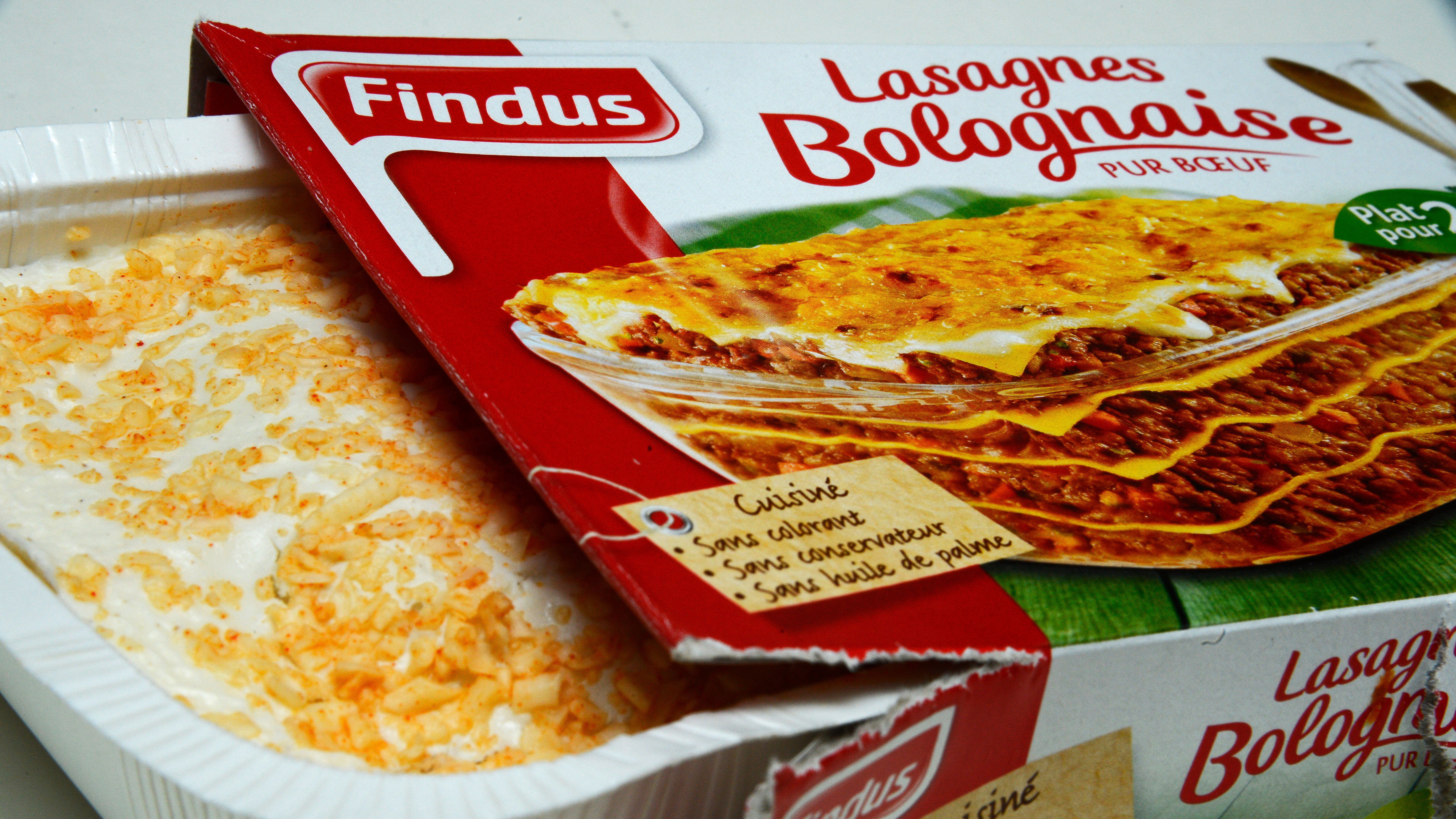Horse-Meat Lasagna Scandal Lands 4 On Trial In France
A trial began yesterday in France in the case of four individuals who are accused of substituting cheap horse meat in packaged foods, while labelling the meat as more expensive beef. The Associated Press reports the food executives and meat traders allegedly played roles in a scheme that was first reported six years ago; known as "Horsegate," the scandal involved more than 538 tons of horse meat which was made into lasagna, burgers, and pasta sauce that were sold across Europe. All four have been charged with fraud and face up to 10 years in prison.
To be clear, eating horse meat is not universally taboo in Europe, nor in Canada or central Asia; America is one of only a few places in the world that has stigmatized eating horse meat. The "Horsegate" incident is scandalous not because of the meat itself, but because it was fraudulently presented as beef and then labeled as such in frozen dinners, meat sauce, and in school and hospital lunches. Per the AP, "although officials said that eating horse meat was not generally dangerous, the scandal upset people in places where such meat traditionally is not eaten." The meat was also incorrectly touted as originating in France, when it more likely came from Romania, Belgium, or Canada.
This story is strange on its face—538 tons of horse meat—but there are even more bizarre details within it. Surely one of our Takeout readers is a screenwriter who could dramatize this saga for the stage:
- One of the defendants, a Dutch meat trader named Johannes Fasen, was fined 50,000 euros in 2013 in a similar case involving the fraudulent sale of horse meat. (Some people never learn.)
- Fasen's company is named Draap Trading Ltd., which is the Dutch word for horse, "paard," spelled backwards. (What is this, The Usual Suspects?!)
- In the wake of the multicountry Horsegate scandal, supermarkets and institutions were told to DNA test their meat to assure the public it was, in fact, from the animal on its label. (Futuristic!)
The French food-company executives claim they were victims of the meat traders' fraud, rather than accomplices. "His only criterion when he bought the meat was its price," one of their lawyers told the AP.
